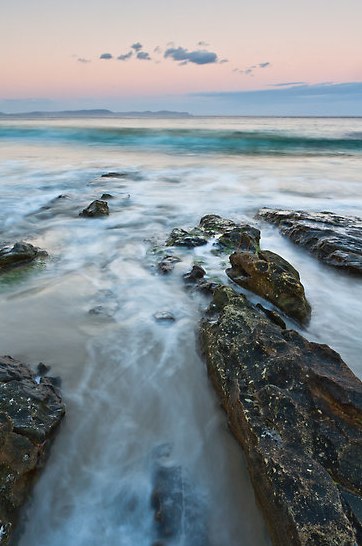Hints on taking better photos #4: Leading Lines
When taking a picture, think about what it is that you want the viewer to see. Why are you taking the picture? How are you going to emphasise the subject?
Minimising distractions is a good thing to try but you can also use leading lines: things in the scene to draw the viewer's eye in to the subject. Here are a couple of examples.
The first one was taken at sunset on Bruny Island. I had my camera on a tripod, quite low down and just at the limit of where the waves were coming up the beach. There were some rocks with straight edges going down toward the waves so I put the camera between them. The rocks frame an open triangle pointing into the picture and hopefully lead the eye to the breaking wave and the land on the horizon. Something else that helps here is the long exposure (a few seconds I think). As the water rushes out it leaves foam and bubbles that blur and also create lines to lead the viewer's eye.
Sunset at Adventure Bay, Bruny Island
Here's another one of the kids (quite a while ago now!) riding their bikes in a park. This park has a curvy 'railway line' painted on the path. Curved lines are great for creating interest and again, getting low down and making the path run up from the bottom of the frame leads the eye in. Note also that Patrick is at the intersection of two one-third lines (the rule of thirds again!). This one was taken with my iPhone and then just a little tweaking later on to darken the foreground a little.

